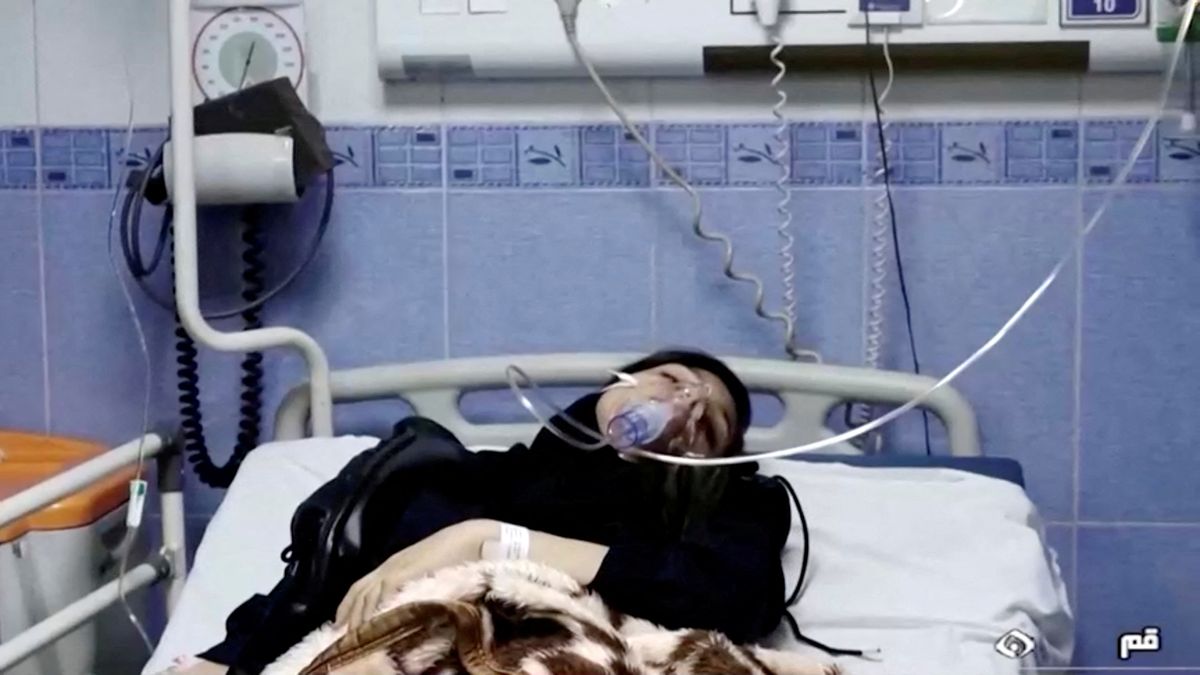Iranian schoolgirl poisonings – what you need to know
Thousands of students have gotten sick from the poisonings (some hospitalized), and one girl reportedly died.

A few minutes every morning is all you need.
Stay up to date on the world's Headlines and Human Stories. It's fun, it's factual, it's fluff-free.
The backstory: Since last September, Iran has seen mass protests and social unrest after the death of Mahsa Amini while in Morality Police custody for wearing her hijab improperly. And, starting last November, schools in Iran have been attacked with toxic gas in cities like Qom and Tehran. Around 230 schools in 25 provinces have been targeted, according to Mohammad-Hassan Asafari, a member of the parliamentary fact-finding committee investigating the poisonings. And the attacks have primarily been focused on girls' schools.
More recently: Thousands of students have gotten sick from the poisonings (some hospitalized), and one girl reportedly died. The Center for Human Rights in Iran said that 11-year-old Fatemeh Rezaei died after an attack, but authorities deny her death was related to the poisonings. These gas attacks have caused breathing problems, nausea, dizziness and fatigue. Some observers suspect the attacks could be part of an extremist response to the recent anti-government protests. Others have said some cases could be from "mass sociogenic illness," meaning it is psychological rather than caused by a physical substance. In fact, the country's education minister has said 95% of the girls going to the hospital didn't have a medical problem and that enemies may be conspiring to close the schools. Iran has also accused its enemies of using the attacks to undermine the government.
The development: Asafari reportedly told the ISNA news agency on Monday that over 5000 students had been affected since November. Iranian human rights groups are putting that number at more than 7000. This week, Iran announced that authorities have made the first arrests connected to these poisonings. And on Monday, Iran's supreme leader, Ayatollah Ali Khamenei, said that the attacks are an "unforgivable" crime that should be punished by death. The investigation is still ongoing.
Key comments:
Warning: The video posted in the tweet below may be distressing for some viewers.
March 5, 2023. Fatemieh Art School in Hamedan.
— 1500tasvir_en (@1500tasvir_en) March 5, 2023
Schoolgirls shout: “We don't want to die!”pic.twitter.com/ssF6a0YYUt
"Even though this student had no prior illness, the authorities are trying to write a false medical report saying she had a long history of illness," Iranian journalist and children's rights activist Hedie Kimiaee tweeted on February 27 about Fatemah Rezei. "Qom's prosecutor has also warned the family not to talk to the media [and told them to] bury Fatemeh without notice."
"The attacks aren't sophisticated at all," said Deepa Parent, a human rights journalist from the Guardian. "One doctor told me that based on the symptoms they're seeing, it's likely to be a weak organophosphate agent [widely used in agriculture as pesticide]."
"Authorities should seriously pursue the issue of students' poisoning," Ayatollah Ali Khamenei was quoted saying by state media. "If it is proven deliberate, those perpetrators of this unforgivable crime should be sentenced to capital punishment."




Comments ()